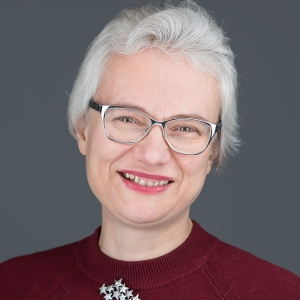Garrett Fitzgerald ’18 is a computer engineering major. He conducts galaxy evolution research. And uses computer algorithms to do it. Innovative thinking that got him a job at a San Francisco startup this summer. Where he applied the same algorithms, and gave the company a whole new way to look at cancer research.
No wonder Fitzgerald says being part of the Undergraduate ALFALFA Team (UAT) has “been the single most influential and beneficial aspect of my Union College experience.”
The UAT, a collaborative effort across 20 U.S. institutions led by Rebecca Koopmann ’89, professor of physics and astronomy, studies everything from the origin of optically dark dwarf galaxies to star formation to the distribution of mysterious dark matter in the nearby universe.
And student-researchers like Fitzgerald, who hopes to keep studying the universe after graduation, have been inspired to continue in science, technology, engineering and math (STEM) fields.
Of the 27 Union students who have participated, 92 percent have continued their educations or careers in STEM disciplines. And across the entire Undergraduate ALFALFA Team, 82 percent of its 195 alumni are employed in STEM fields or enrolled in STEM graduate programs.
The reason? Students get to do science. They’re active participants and partners, they aren’t just shadowing their mentors.
“Undergraduates are engaged in all aspects of project planning: observing, data analysis and science,” Koopmann said. “The core parts of our program include an annual workshop at a national observatory; onsite observing runs a national observatories and remote observing on campus; research projects on campus; and support to travel to national professional astronomy meetings to present results.”
The Council on Undergraduate Research Quarterly (summer 2016) recently highlighted the program, focusing on this novel research model, which places undergraduates at the center of major astronomy projects.
The UAT, also unique in that it regards student success as complementary to and dependent upon effective faculty development, grew through Koopmann’s collaboration with Cornell researchers Martha Haynes and Riccardo Giovanelli— leaders of the seven-year ALFALFA survey of the whole sky (as visible from Arecibo Observatory in Puerto Rico).
The ALFALFA team (Arecibo Legacy Fast ALFA) uses observations in its research that were collected during this survey, and from ongoing observing runs at national observatories. So far, 18 Union students have travelled to a national observatory such as Arecibo or Kitt Peak (Arizona) to collect data, and many more have observed at Arecibo remotely from Koopmann’s Union lab.
Under Koopmann’s leadership, Union has received several prestigious National Science Foundation grants to support the UAT.


